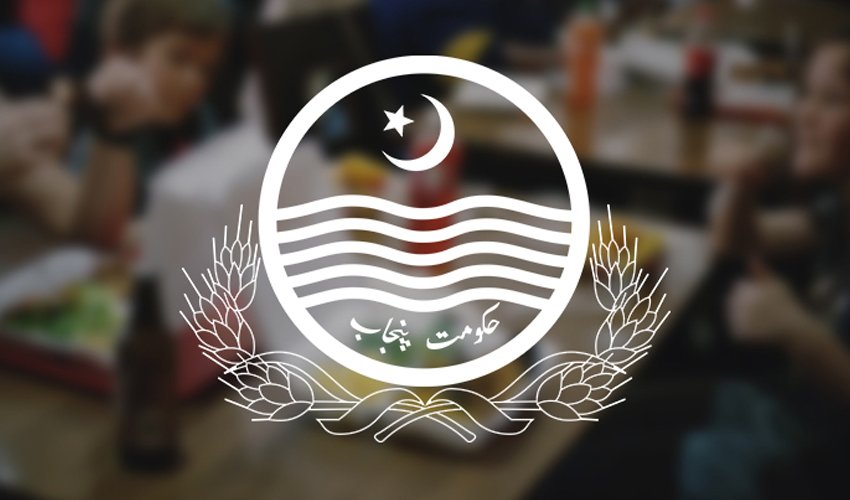Mubashir Nadeem
The latest rankings from the globally recognized Nomad Capitalist organization have once again spotlighted a harsh reality for Pakistan: its passport ranks among the worst in the world, landing at an alarming 195th out of 199. While Ireland celebrates its top position, Pakistan remains relegated to the very bottom, a testament to the country’s struggles in global diplomacy, governance, and socio-political stability. Behind Ireland’s coveted rank are other European nations like Greece, Switzerland, and Portugal—countries whose citizens enjoy freedom of travel, investment, and opportunities that are, unfortunately, out of reach for Pakistanis.
The state of Pakistan’s passport is far from surprising, but the extent of its decline is both striking and concerning. A weak passport, particularly one that sits at the bottom of global rankings, is not merely a symbol of limited travel opportunities. It reflects deeper systemic issues, ranging from fragile diplomatic relations to an absence of political will in fostering an environment that enhances the value of Pakistani citizenship. The countries that impose travel restrictions or harsh conditions on Pakistani citizens view our nation through the lens of perceived risks—security concerns, unstable governance, and a lack of reliable institutions.
This persistent issue of poor global mobility is emblematic of the more significant structural problems that Pakistan faces. It is not simply a matter of individuals being restricted in their ability to travel; it signals a broader international perception of Pakistan’s institutions, the trustworthiness of its government, and the state of its internal affairs. Many countries, particularly those in Europe and North America, impose barriers on Pakistani travelers due to concerns over security, corruption, and the strength of Pakistan’s political institutions. This diplomatic isolation harms not only individual Pakistanis but also the country’s ability to forge stronger international ties, attract investments, and nurture its diaspora.
A closer look at the criteria for the passport rankings reveals that the issue goes beyond just travel restrictions. Nomad Capitalist’s rankings focus on various factors such as visa-free access to countries, dual citizenship policies, and tax frameworks—elements that directly affect the global competitiveness of a nation’s citizens. Here, Pakistan’s performance falters significantly. Unlike other countries that actively court global citizens by offering favorable dual citizenship policies or tax incentives, Pakistan remains inflexible and exclusionary. This rigid approach is one of the main reasons why so many of Pakistan’s brightest minds leave the country in search of better opportunities abroad.
The trend of “brain drain” has been a persistent issue for Pakistan, with talented professionals, entrepreneurs, and academics often choosing to settle in countries with more accommodating policies. These individuals, who could potentially contribute to the country’s growth and development, are hindered by the limitations imposed by Pakistan’s outdated immigration and citizenship policies. The lack of opportunities and incentives forces these talented citizens to seek better prospects overseas, only to face the frustration of owning a passport that offers few options for return or re-entry.
In contrast, many other nations are proactively creating pathways for their citizens to maintain global mobility and engage in international markets. These countries are leveraging the power of flexible taxation, dual nationality, and attractive investment policies to ensure their citizens have access to a wider world of opportunities. By doing so, they not only improve the quality of life for their citizens but also strengthen their global standing, attracting talent, investment, and resources that help fuel their economic growth. Unfortunately, Pakistan is not playing in the same league, and this is reflected in its dismal passport ranking.
For Pakistan, the implications of this ranking should not be taken lightly. It serves as a wake-up call—a clear signal that the country must undertake significant reforms in both its foreign policy and domestic governance to improve its standing in the international community. If Pakistan is serious about reversing the trajectory of its passport ranking, it must take immediate and comprehensive action to address the underlying causes of its diplomatic isolation and global indifference.
Pl subscribe to the YouTube channel of republicpolicy.com for quality podcasts:
One of the most urgent reforms needed is in the area of immigration and citizenship policies. Pakistan must create an environment that encourages investment, talent retention, and the free flow of people and ideas. By adopting flexible immigration policies, offering dual citizenship options, and creating tax incentives, Pakistan can not only enhance the mobility of its citizens but also open the door to greater foreign investment and global collaboration. These reforms would help Pakistan compete more effectively in the global economy and, more importantly, restore its citizens’ faith in their ability to thrive at home and abroad.
Equally important is the need for Pakistan to overhaul its foreign policy to rebuild trust with other nations. Diplomatic ties must be strengthened through open dialogue, transparency, and cooperative efforts that demonstrate Pakistan’s commitment to stability, security, and responsible governance. Building stronger relationships with key global partners will help Pakistan re-establish its credibility on the world stage, thereby reducing the barriers to travel and trade that currently limit its global standing. Moreover, the perception of Pakistan in the international arena must change from one of instability to one of opportunity—both for its citizens and the global community at large.
Additionally, Pakistan must create systems that make it easier for its diaspora to invest in and contribute to the country’s growth. The Pakistani diaspora represents a valuable resource, with the potential to drive investment, innovation, and job creation in the homeland. However, bureaucratic obstacles and inefficient systems often discourage the diaspora from returning or investing in Pakistan. By simplifying the processes and offering attractive incentives, Pakistan can tap into this reservoir of human and financial capital, which could play a pivotal role in its economic recovery and development.
The challenges facing Pakistan’s passport are undeniably complex, but they are not insurmountable. If Pakistan is willing to make bold and progressive changes to its immigration, citizenship, and foreign policy, it can begin to rebuild its standing in the world. Improving the global perception of Pakistan will not only enhance the mobility of its citizens but also pave the way for greater international collaboration, trade, and investment. The road ahead will require comprehensive reforms, a forward-thinking approach, and a commitment to overcoming the internal challenges that have long hindered the country’s growth and global influence.
In conclusion, Pakistan’s low passport ranking is a clear indicator of deeper issues within its diplomatic and political systems. While the weak passport may seem like a minor inconvenience for travelers, it represents much more—a reflection of the country’s inability to engage effectively with the global community. To reverse this trend, Pakistan must embark on meaningful reforms that address both governance and international relations. The time to act is now, or Pakistan risks losing out on valuable opportunities that could shape its future for generations to come.















